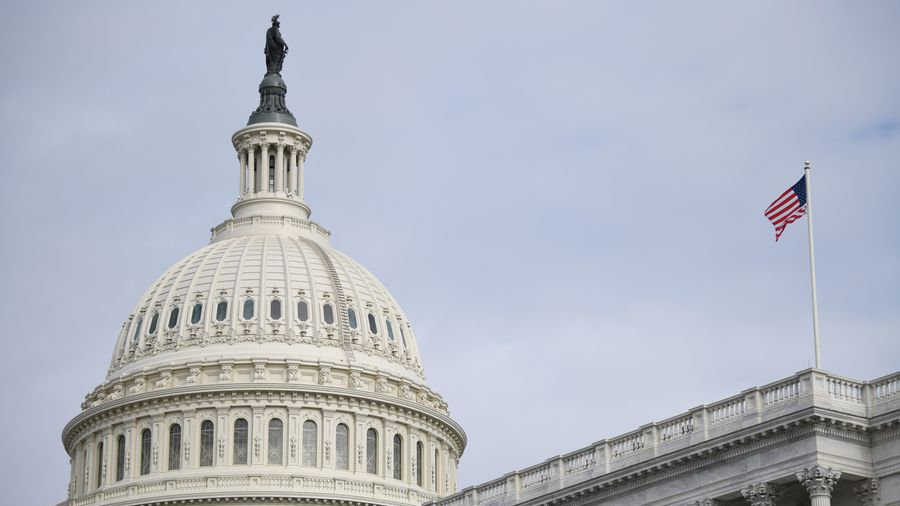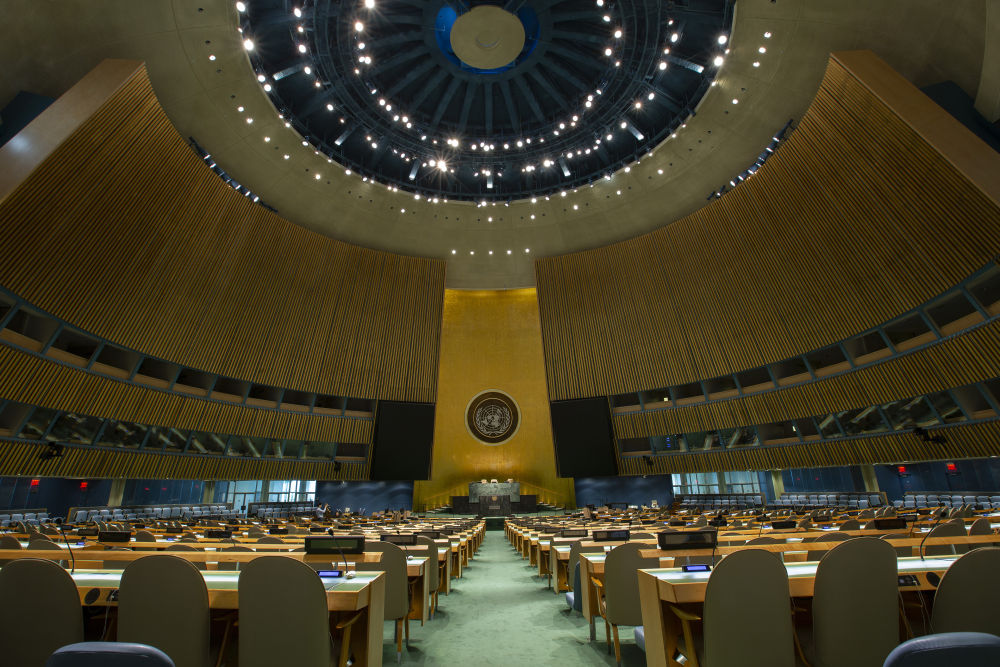By Danny Haiphong

The Capitol Hill in Washington D.C., the U.S. [Photo/Xinhua]
On March 28, the U.S. House of Representatives passed the "PRC Is Not a Developing Country Act" by a unanimous vote of 415-0 in yet another demonstration of the solid bipartisanship that exists in the United States when it comes to containing and isolating China. Under the terms of the bill, U.S. Secretary of State Antony Blinken would be directed to seek the removal of China's status as a developing country from international organizations and institutions.
The United Nations, the International Monetary Fund (IMF) and the World Bank all recognize China as a developing country for good reason. China's GDP per capita, while rising, is $12,700 or about five times smaller than the U.S.'s. China's Human Development Index is 79th in the world. It's committed to improving living standards for all people and has taken its commitments to the international community seriously. Of course, the "PRC Is Not a Developing Country Act" has nothing to do with facts and everything to do with curbing China's development.
Ending China's developing country status prematurely would come with consequences. The World Bank and IMF could rescind tariff preferences and low-interest loans. China's carbon emissions target may increase and the time-frame for meeting them decrease. In other words, China's development path would become more difficult, which is exactly what the "PRC Is Not a Developing Country Act" hopes to achieve.
The legislation represents just one example of where the U.S. has sought to rig the rules of economic development against China. In late 2022, U.S. President Joe Biden announced an export ban on China's semiconductor industry to slow down its tech sector.
Both the Biden administration and U.S. lawmakers are pursuing a McCarthyist witch hunt against TikTok with the hope that TikTok's parent company, Bytedance, can be forced to sell its shares to a U.S. corporation. This would further legitimize the U.S.'s demonization of Chinese tech over the past several years and eliminate a key competitor to U.S. tech monopolies such as Meta.
The U.S.'s attack on China's tech sector sends a clear message: If the U.S. cannot compete with China, then it must violate every rule of the "free-market" to undermine the latter's economic rise. A "China threat" narrative has been repeated ad nauseum by the U.S. political establishment to justify the economic sabotage and Cold War aggression necessary to pursue this goal.

The UN General Assembly Hall, the largest venue at the UN headquarters. [Photo/Xinhua]
Ending China's developing country status would give a much-needed public relations boost to what most in the Global South view as a purely fictitious narrative. China's economic miracle has been peaceful and massively beneficial to the world. China enjoys robust economic relations with all nations around the world, and its leadership role in facilitating South-South development through the Belt and Road Initiative, BRICS, the Shanghai Cooperation Organization (SCO), and other multilateral institutions has been widely embraced.
The "PRC Is Not a Developing Country Act" is thus an attack on development itself. It is a warning to nations around the world that they risk economic warfare should their success be perceived as a "threat" to U.S. hegemony. The world has become quite familiar with this warning. It has been sent not only in the U.S.'s economic aggression against China, but also in the use of unilateral sanctions against Russia and dozens of other nations.
However, the U.S. faces a major problem with its strategy to undermine development. The more it attempts to aggressively curb China's economic rise, the clearer it becomes that the U.S. is the one taking a wrecking ball to human progress. Sanctions and economic war produce only poverty and instability. They compound the historical problems of underdevelopment imposed by the Western-led imperial order, now under the leadership of the United States. As economic instability has increased from U.S.-led sanctions, trust in the U.S.-led "rules-based international order" has also declined.
China, however, has gained the trust of nations in the Global South by developing robust mechanisms for South-South development. No U.S. law can change this fact. The proof is everywhere. Saudi Arabia is joining the SCO and eventually, BRICS. Brazil and China have agreed to trade in their own respective currencies, bypassing the U.S. dollar. These are just two examples in recent weeks of China's leadership in developing a multipolar world.
China and several other nations are making concerted decisions to write a new story of development, one that respects the sovereignty and the right of nations to peaceful development. The "PRC Is Not a Developing Country Act" represents the latest attempt to keep the book of U.S. hegemony open at the expense of development itself.
The author is an independent journalist and researcher in the United States.

 中文
中文



